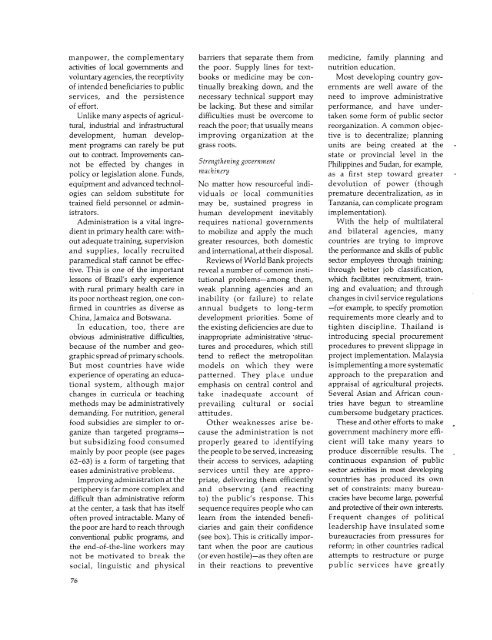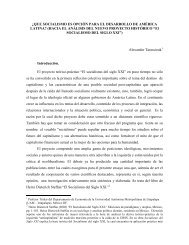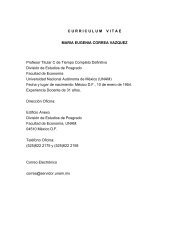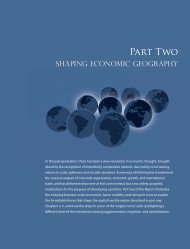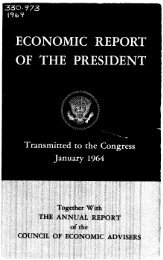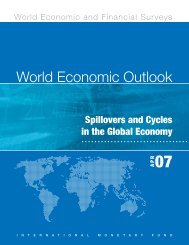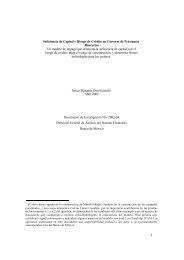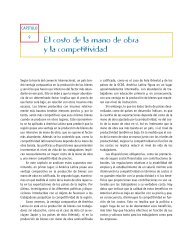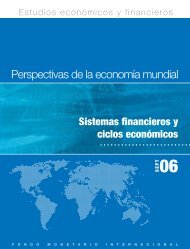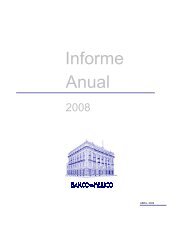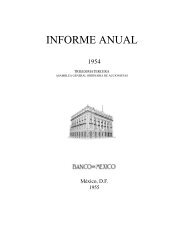manpower, the complementary barriers that separate them from medicine, family planning andactivities of local governments and the poor. Supply lines for text- nutrition education.voluntary agencies, the receptivity books or medicine may be con- Most developing country govofintended beneficiaries to public tinually breaking down, and the ernments are well aware of theservices, and the persistence necessary technical support may need to improve administrativeof effort. be lacking. But these and similar performance, and have under-Unlike many aspects of agricul- difficulties must be overcome to taken some form of public sectortural, industrial and infrastructural reach the poor; that usually means reorganization. A common objecdevelopment,human develop- improving organization at the tive is to decentralize; planningment programs can rarely be put grass roots. units are being created at theout to contract. Improvements can-state or provincial level in thenot be effected by changes in Strengthenin government Philippines and Sudan, for example,policy or legislation alone. Funds, machinery as a first step toward greaterequipment and advanced technol- No matter how resourceful indi- devolution of power (thoughogies can seldom substitute for viduals or local communities premature decentralization, as intrained field personnel or admin- may be, sustained progress in Tanzania, can complicate programistrators. human development inevitably implementation).Administration is a vital ingre- requires national governments With the help of multilateraldient in primary health care: with- to mobilize and apply the much and bilateral agencies, manyout adequate training, supervision greater resources, both domestic countries are trying to improveand supplies, locally recruited and international, attheir disposal. the performance and skills of publicparamedical staff cannot be effec- Reviews of <strong>World</strong> <strong>Bank</strong> projects sector employees through training;tive. This is one of the important reveal a number of common insti- through better job classification,lessons of Brazil's early experience tutional problems-among them, which facilitates recruitment, trainwithrural primary health care in weak planning agencies and an ing and evaluation; and throughits poor northeast region, one con- inability (or failure) to relate changes in civil service regulationsfirmed in countries as diverse as annual budgets to long-term -for example, to specify promotionChina, Jamaica and Botswana. development priorities. Some of requirements more clearly and toIn education, too, there are the existing deficiencies are due to tighten discipline. Thailand isobvious administrative difficulties, inappropriate administrative struc- introducing special procurementbecause of the number and geo- tures and procedures, which still procedures to prevent slippage ingraphic spread of primary schools. tend to reflect the metropolitan project implementation. MalaysiaBut most countries have wide models on which they were isimplementingamoresystematicexperience of operating an educa- patterned. They plate undue approach to the preparation andtional system, although major emphasis on central control and appraisal of agricultural projects.changes in curricula or teaching take inadequate account of Several Asian and African counmethodsmay be administratively prevailing cultural or social tries have begun to streamlinedemanding. For nutrition, general attitudes. cumbersome budgetary practices.food subsidies are simpler to or- Other weaknesses arise be- These and other efforts to makeganize than targeted programs- cause the administration is not government machinery more effibutsubsidizing food consumed properly geared to identifying cient will take many years tomainly by poor people (see pages the people to be served, increasing produce discernible results. The62-63) is a form of targeting that their access to services, adapting continuous expansion of publiceases administrative problems. services until they are appro- sector activities in most developingImproving administration at the priate, delivering them efficiently countries has produced its ownperiphery is far more complex and and observing (and reacting set of constraints: many bureaudifficultthan administrative reform to) the public's response. This cracies have become large, powerfulat the center, a task that has itself sequence requires people who can and protective of their own interests.often proved intractable. Many of learn from the intended benefi- Frequent changes of politicalthe poor are hard to reach through ciaries and gain their confidence leadership have insulated someconventional public programs, and (see box). This is critically impor- bureaucracies from pressures forthe end-of-the-line workers may tant when the poor are cautious reform; in other countries radicalnot be motivated to break the (or even hostile)-as they often are attempts to restructure or purgesocial, linguistic and physical in their reactions to preventive public services have greatly76
members, too, as no bureaucraticRural poverty unperceivedagency can. When local healthPoor people are often the most difficult * Getting poor people to talk about centers in northern Senegal wereto reach. Many live on the edges of significant incidents in their life and work, unable to reach the people directlyvillages, far from main roads. They are particularly about those they see as being in a child-feeding program, theilliterate, have no radios and know little responsible for their poverty. religious leaders took over part ofabouteventsbeyondtheirneighborhood. * Exploring practices and attitudesThey rarely go to public meetings and that affect, for instance, diets and fertility. the food distribution: recent retravellittle except in search of work. * Seeking out those who do not use search indicates that this is anThose whose legal position is weak (such services or adopt new practices, and trying effective way of getting food toas refugees or squatters) may even try to understand the reasons for this. poor families. Local groups canto hide, to be invisible to the official Relatively simple but systematic surveys also provide reliable feedback oneye. Out of sight, they hope to be out can sometimes help those who carry them project experiments, and can inofmind.out. To take one example: in a densely fluece eaucries to in-As for the professionals who work in populated part of western Kenya, junior fluence bureaucracies to improverural development programs, many of agricultural extension staff and home services in ways that unorganized,them are caught in an urban trap. Young, economics workers were each given a poor individuals could not.unmarried officials are sent to remote random sample of 100 households to Research in both developed andrural areas; but age, marriage and their survey, in the area where they worked. developing countries shows thatcareers draw them back to the towns After the survey, many at first thoughtand cities. And those who do live in the that the sample had been biased heavily when the beneficiaries are involvedcountryside often direct their attention against the better educated households. through their own organizations,towardpeopletheyhavemostincommon One of the agricultural staff complained they respond more effectively towith-the not-so-poor. that only one of his 100 households had services. That has happened, forWhat can be done to correct this bias? an improved breed of cow: he wasChanging career patterns and incentives surprised to learn that he had, without example, i 4,500 village cooperatoreward rural work is fundamental; recognizing it, been concentrating on tives organized by the Indiantraining can also play a role. better-off households; in fact the area National Dairy Development Board;Without the need for complicated average was only one of these cows for in 200 local development associaresearch,in-service training can help more than 200 households. A home tions in the Yemen Arab Republic;people to understand more about poverty. economics worker was appalled at theFor example: poverty she had found. "These people n more than 9,000 Mothers' Clubs* Family case studies: a day in the life do not come to my meetings," she said. in South Korea, where familyof a landless household, or how a poor Perceiving reality is the first step to planning and other communityfamily survives the hungry season. changing it. functions have been assumed bytraditional credit associations(called kaes); and in special radioreduced the ability of govemments ment rather than supplant the listening and discussion groups into maintain essential human services available through health which about 2 million ruraldevelopment programs. ministries or other official family Tanzanians participated duringplanning agencies. The cost to users the "Man is Health" campaign inChoosing appropriate administrative has been kept low by providing Tanzania in 1973.strategies the private distributors with free There is of course a danger thatTo help make programs fully or highly subsidized contraceptives poor people's organizations mayeffective, administrators may need and controlling the retail price. And come to be dominated by localto use a variety of institutions- in Singapore, contraceptive infor- elites, with an associated risk ofnational bureaucracies, public mation was at one time distributed corruption. One of the main probenterprises,private businesses, with public utility bills. lems of agricultural cooperatives,voluntarv agencies, local govern- Organizations of intended for instance, has been to resistments and organizations of intended beneficiaries are not conven- this type of domination. Unlikebeneficiaries-and strike the right tionallyregardedasadministrative subsidized agricultural credit orbalance between them. agencies, but they can play a fertilizer, however, primary educa-In family planning, for example, valuable role. Farmers' organiza- tion cannot be stolen, hoarded ortraditional channels of private tions, rotating credit associations, resold. And though medicines canmarketing, which reach even remote women's clubs, religious groups be, even the richest person wouldvillages, have proved effective in and marketing cooperatives are in not want a hundred vaccinations.many countries (including India, principle accountable to, and can Another problem is infightingIndonesia, Jamaica and Sri Lanka). reflect the interests of, their mem- between rival local groups. ButThese private distributors supple- bers. They can involve their the suspicions that established77
- Page 1:
t' 8 ~~~~ottoWorld Development Repo
- Page 4 and 5:
Oc 1980 by the International Bankfo
- Page 6 and 7:
ivThis report was prepared by a tea
- Page 8 and 9:
Text tables2.1 Summary of prospects
- Page 10 and 11:
DefinitionsCountry groups in the an
- Page 12 and 13:
illion people have barely enough fa
- Page 14:
in official aid and other capital a
- Page 17 and 18:
production and consumption; in- Tab
- Page 19 and 20:
measures can raise efficiency fairl
- Page 21 and 22:
adjustment; but the increases pro-
- Page 23 and 24:
dustrialized countries' GNP would T
- Page 25 and 26:
windfalls, some of their extra cont
- Page 27 and 28:
e done to increase the supplies Lat
- Page 29 and 30:
exchange-rate depreciation, by perc
- Page 31 and 32:
Table 3.2 World merchandise trade,
- Page 33 and 34:
* Inward-looking policies may exper
- Page 35 and 36: inward-looking policies, with high
- Page 37 and 38: cause individual banks or bank- Tab
- Page 39 and 40: to GNP, of all large industrial na-
- Page 41 and 42: in Chapter 2). Ways of increasing a
- Page 43 and 44: 4 Poverty, growth and human develop
- Page 45 and 46: expectancy was less than 50 years,
- Page 47 and 48: population density (see page 39). e
- Page 49 and 50: ably could not have been achieved c
- Page 51 and 52: ution of income typically is less T
- Page 53 and 54: Table 4.2 Irrigation and income, se
- Page 55 and 56: ment strategies that assume that in
- Page 57 and 58: average 40 percent drop out before
- Page 59 and 60: this may be offset by shifts in the
- Page 61 and 62: UNESCO concluded that the poorUnemp
- Page 63 and 64: A typical finding showed the mean o
- Page 65 and 66: Table5.6 Differences in life tend t
- Page 67 and 68: are more expensive and less critica
- Page 69 and 70: per hos pital and clinic, and to st
- Page 71 and 72: peaks in farm work and widespreadin
- Page 73 and 74: confined to particular places. In A
- Page 75 and 76: Indonesia, Colombia and Chilehave r
- Page 77 and 78: (which respond only gradually to cu
- Page 79 and 80: Contraceptive technologyresearch in
- Page 81 and 82: 6 Implementing human development pr
- Page 83 and 84: probably China-have managed Table 6
- Page 85: percent of the development bud- dev
- Page 89 and 90: Private costs of using public servi
- Page 91 and 92: ut not teachers or health workers,
- Page 93 and 94: 7 Priorities and progress in region
- Page 95 and 96: literacy and life expectancy); andF
- Page 97 and 98: to establish the necessary admin-Fi
- Page 99 and 100: Poverty Figure 7.5 South Asia: life
- Page 101 and 102: and North Africa cover the spec- gr
- Page 103 and 104: The high level of urbanization well
- Page 105 and 106: Chaipter 8 Summary and conclusionsI
- Page 107 and 108: is high, frequently well above that
- Page 109 and 110: Stat.istical appendix to Part ITabl
- Page 111 and 112: Table SA.6 Capital flows and debt o
- Page 113 and 114: Montgomery survey administra- publi
- Page 115 and 116: AnnexWorldDevelopmentIndicators
- Page 117 and 118: Table 13. Balance of Payments and D
- Page 119 and 120: IntroductionThe World Development I
- Page 121 and 122: GNP per capitaAverage indexAverageo
- Page 123 and 124: Average annual growth rate (percent
- Page 125 and 126: Distribution of gross domestic prod
- Page 127 and 128: Average annual growth rate (percent
- Page 129 and 130: Distribution of gross domestic prod
- Page 131 and 132: Distribution of value added (percen
- Page 133 and 134: EnergyEnergyconsumptionAverage annu
- Page 135 and 136: Merchandise tradeAverage annual gro
- Page 137 and 138:
Percentage share of merchandise exp
- Page 139 and 140:
Percentage share of merchandise imp
- Page 141 and 142:
Destination of merchandise exports
- Page 143 and 144:
Destination of manufactured exports
- Page 145 and 146:
Current accountbalance before Inter
- Page 147 and 148:
Public and publicly guaranteed medi
- Page 149 and 150:
External public debtoutstanding and
- Page 151 and 152:
Amount1981a 1982a 1983a 1984a 1985a
- Page 153 and 154:
Average annualHypotheticalgrowth of
- Page 155 and 156:
PercentageCrude Crude Percentage Pe
- Page 157 and 158:
Percentage ofpopulation ofworking a
- Page 159 and 160:
Percentage of urban population Numb
- Page 161 and 162:
Life Infant Childexpectancy mortali
- Page 163 and 164:
PercentageDaily calorie supplyPopul
- Page 165 and 166:
Number Numberenrolled in enrolled i
- Page 167 and 168:
Percentage share of household incom
- Page 169 and 170:
Average index Tables 4 and 5. Growt
- Page 171 and 172:
28 (minerals, crude fertilizers and
- Page 173 and 174:
continues to grow after replacement
- Page 175 and 176:
posttax income and conceptually tic
- Page 180:
-~~~ S-~~~~~ sEuropean Office:66, a


